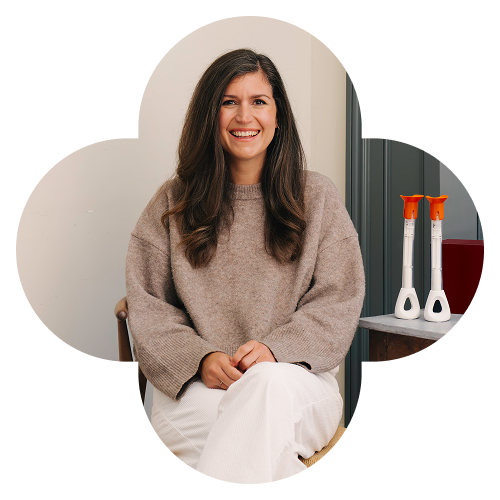Talking to a doctor about fertility can be difficult. However – your doctor is there to help and support you. Here we discuss how to get the most out of your consultation.
How to talk to your doctor
It can be worrying when you’re not sure what is going on with your body, but you should never feel embarrassed when talking about fertility with your doctor. Your general practitioner or primary care physician is there to help and the more details you share, the easier it can be for them. We’ve provided some tips that may make it easier:
Understand if your period is irregular
An irregular period is a cycle shorter than 21 days or longer than 35 days, having fewer than 8 cycles per year or having a cycle longer than 90 days. Having a regular cycle is a good indicator that you are ovulating.
Track your period
Your doctor will likely ask questions about your menstrual cycle, and it might help if you have details about how long your cycles are and how long your period normally lasts.
Don’t wait to get help
If you’re trying to conceive and have a condition that impacts your fertility, like irregular periods, PCOS or endometriosis, you should visit your doctor, as you may be able to access tests or treatments sooner.
You should visit your doctor if:
- You’re under 36 years old and have been trying to conceive for 1 year
- You’ve over 36 years old and have been trying for 6 months
- If you have a known medical reason for fertility problems
- If you are a single woman or in a same-sex female relationship
Your doctor might carry out an assessment and perform some initial tests to see if there is an underlying cause of the delay in getting pregnant.
Prepare for your appointment
Appointments can be short, so you may want to prepare in advance. You could write down details of:
- How long you’ve been trying to conceive
- The length of your menstrual cycle
- How long your period lasts
- Any symptoms you’ve been experiencing (such as painful periods or bleeding in between periods)
- Any specific questions you want your doctor to answer (don’t be afraid to ask questions – there are no ‘silly‘ questions and it is better to share these with your doctor so they have the chance to respond).
We hope this helps you to make a start on getting the support you need.


Share:
The Béa Fertility Glossary
NEW SURVEY: Thousands of Brits Seek IVF Alternatives To Get Pregnant